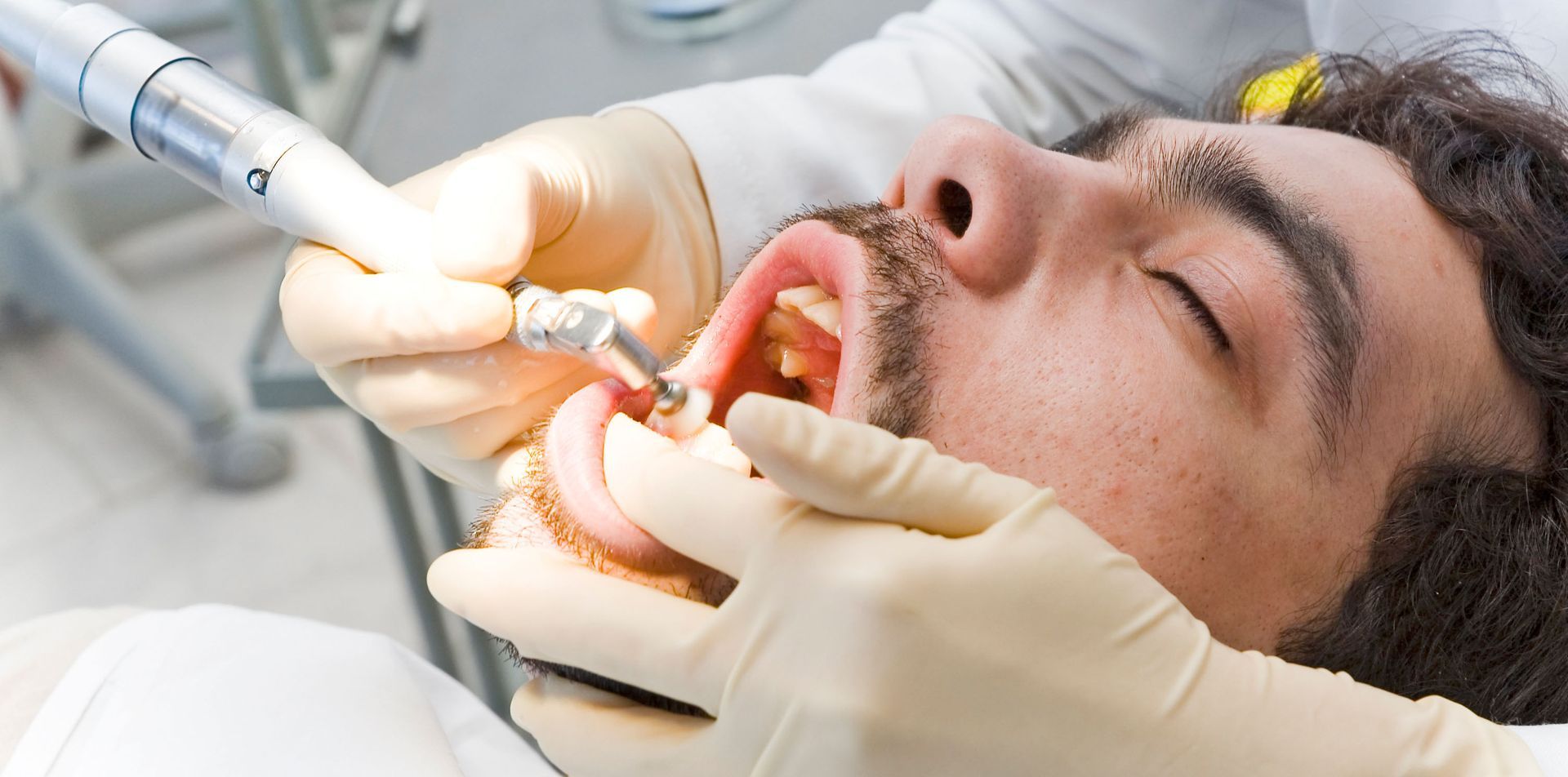Maintaining good oral health is often overlooked in the greater context of overall health care. Many people believe that if they're brushing and flossing regularly, they've covered all their dental bases. However, regular visits to a dentist are a critical part of maintaining not only oral health but overall well-being. This article explores why regular dental visits are more crucial than you may think.
1. Early Detection of Oral Health Issues
Spotting Cavities Before They Worsen
Regular dental visits can catch cavities early before they become painful or result in more serious issues. Dentists can identify subtle signs of decay that aren't always apparent to the untrained eye. If left unchecked, cavities can lead to more severe complications such as root canals or even tooth loss. Regular professional check-ups provide an opportunity for early intervention, potentially saving significant pain and expense. This aspect of preventive dentistry underscores the importance of not delaying appointments.
Identifying Gum Disease in Early Stages
Gum disease is a common condition that can lead to severe problems if not treated early. Dentists are trained to spot early signs of gum disease, which might not be noticeable to patients. Early intervention can prevent the progression to periodontitis, a severe condition that necessitates more invasive treatment. Routine visits allow for regular monitoring and timely treatment, significantly reducing progression. Therefore, visiting your dentist regularly is a proactive step in maintaining comprehensive oral health.
Monitoring for Oral Cancer Symptoms
Oral cancer screenings are a critical part of regular dental check-ups. Dentists are trained to recognize early signs of oral cancer, which can manifest as sores, ulcers, or unusual tissue changes. Early detection dramatically improves treatment outcomes and survival rates. With an estimated 3.5 billion people affected by oral diseases worldwide, according to Forbes, the importance of routine dental exams becomes even more apparent. Recognizing symptoms early can make a significant difference in successful treatment.
2. Preventive Care Improves Long-Term Oral Health
Professional Teeth Cleaning and Plaque Removal
Professional dental cleaning is more thorough than daily brushing and flossing. Dentists and hygienists have the necessary tools and techniques to remove plaque and tartar buildup. This preventive measure is vital in averting conditions like cavities and gum disease. Regular cleaning ensures hard-to-reach areas are addressed, contributing to overall dental hygiene. Additionally, professional cleaning leaves teeth polished, which helps prevent plaque build-up until the next visit.
Expert Personalized Advice on Dental Hygiene
During dental visits, patients receive personalized advice based on their unique dental health status. A dentist can offer insights into better brushing and flossing techniques tailored to individual needs. Expert recommendations may also include dietary modifications to improve oral health. Dentists can also recommend appropriate dental products suited to each individual's needs. Customized advice empowers patients to maintain optimal oral hygiene between visits.
Reduce the Risk of Tooth Decay and Gum Issues
By addressing risk factors and implementing preventive strategies, regular dental visits reduce the likelihood of tooth decay and gum disease. Dentists can identify habits that may contribute to oral health problems and offer alternatives. Early intervention enables dentists to provide treatment plans tailored to individual circumstances. Regular monitoring and timely actions can prevent minor issues from escalating into major dental problems. As a result, regular check-ups are pivotal in sustaining long-term oral health.
3. Impact on Overall Physical Health
Connection Between Oral and Cardiovascular Health
Oral health is closely linked to cardiovascular health, with several studies indicating a relationship between gum disease and heart conditions. Bacteria in the mouth can enter the bloodstream, potentially leading to heart disease. Regular dental visits help in managing gum health, thus lowering the risk of cardiovascular complications. This emerging connection underscores the importance of dental care as an integral aspect of overall health maintenance. Keeping gums healthy may contribute significantly to cardiovascular wellness.
Role of Oral Health in Preventing Infections
Good oral hygiene is vital in preventing infections, especially in individuals with weakened immune systems. Bacterial infections originating in the mouth can affect overall health, leading to systemic issues. Regular dental visits ensure early detection and management of oral health problems, reducing the risk of these infections. Regular monitoring by a dentist provides an additional layer of protection against potential health risks. Effective oral hygiene is a preventive measure that keeps infections at bay.
Digestive Health and Oral Hygiene
Oral hygiene directly impacts digestion, as the process begins in the mouth. Issues like tooth decay and gum disease can compromise effective chewing, leading to digestive discomfort. Regular dental care ensures oral health, which in turn supports efficient food breakdown and nutrient absorption. Maintaining oral hygiene contributes to overall digestive well-being. As oral health impacts digestive health, keeping regular dental appointments is crucial for harmonious bodily function.
4. Money Saving With Proactive Dental Care
Avoiding Costly Procedures With Regular Check-Ups
Routine dental visits help in detecting issues early, thus preventing the need for expensive treatments later. Addressing minor problems promptly through regular check-ups can avert complicated procedures like root canals or extractions. While it may seem cost-effective to skip dental visits, in the long run, regular care is more economical. Investing in preventive measures limits the need for more costly interventions. Regular dental appointments provide both health and financial benefits.
Eliminating Emergency Dental Visits
Regular dental check-ups reduce the recurrence of emergency dental visits by addressing potential issues early. Emergency visits can be costly and often require intensive treatment efforts. Proactive care minimizes the need for last-minute appointments, ensuring the timely resolution of minor concerns. This preventive approach leads to long-term savings by avoiding unexpected health emergencies. Thus, regular dental care acts as a safeguard against costly surprises.
Savings Through Preventive Care
Investment in regular dental check-ups results in long-term savings by avoiding major dental treatments. Preventive care maintains oral health efficiently, reducing the need for complex and expensive procedures. Regular visits ensure minor issues are treated early, lessening long-term healthcare costs. Effective preventive measures through routine check-ups allow savings in both time and money. Ensuring regular dental visits is economically more feasible than waiting for problems to arise.
5. Psychological and Social Benefits
Impact of Oral Health on Social Interactions
Healthy teeth and gums significantly improve social interactions and first impressions. Conversely, noticeable dental issues can lead to discomfort in social settings. Regular dental care ensures oral hygiene is maintained, minimizing any discomfort or embarrassment. A healthy smile facilitates better communication and can positively affect personal and professional interactions. Regular dental visits can thus play a vital role in enhancing social life.
Reduce Dental Anxiety With Regular Visits
Regular visits to the dentist can alleviate anxiety or fear associated with dental procedures. Familiarity with the dental team and understanding procedures through regular appointments can ease apprehensions. Patients accustomed to routine check-ups build trust with their dentist, alleviating anxieties over time. Managed dental anxiety ensures patients receive necessary care without trepidation. The right atmosphere and regular interaction during visits lead to a more relaxed approach to dental care.
Influence of Good Oral Health on Mental Well-Being
Maintaining oral health is vital not only for physical health but mental well-being. Resolving oral health issues like pain or discomfort can reduce associated psychological stress. Regular dental visits help in addressing these issues promptly, leading to improved mental health. A healthy smile fosters a positive attitude and emotional satisfaction, strengthening mental resilience. Thus, dental health is an influencing factor in overall mental and emotional well-being.
Regular dental visits play a crucial role in maintaining overall well-being, extending beyond just oral health. Here at Bennett Family Dental, we provide an opportunity for early detection of issues and preventive care guidance. Our expert insights and practices can change your mind about prioritizing consistent dental check-ups so you can benefit from the sustainable health and wellness that comes with it. Reach out today!





Share On: